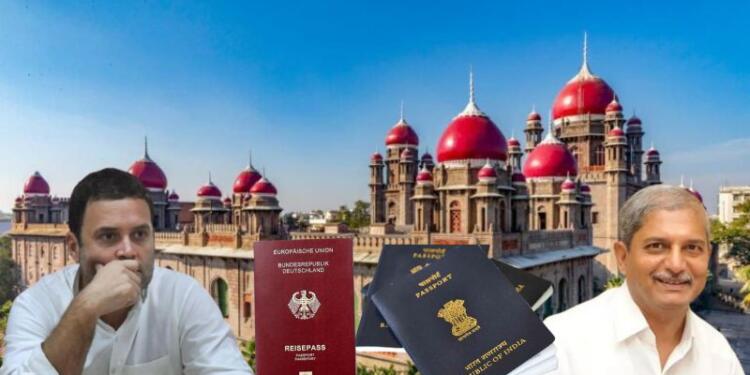The Telangana High Court ruled on Monday that former Bharat Rashtra Samithi (BRS) MLA Chennamaneni Ramesh is a German national and used forged documents to contest elections.
The court imposed a Rs 30 lakh fine on Ramesh for concealing crucial details about his German citizenship and misleading the judiciary in its decision.
Justice B Vijaysen Reddy, on the bench, noted that Ramesh had given false information when applying for Indian citizenship in 2008, failing to disclose his German nationality.
The Union Home Ministry had annulled Ramesh’s citizenship in 2019 due to these misrepresentations, a decision the High Court upheld. The court also confirmed that Ramesh was not stateless, as he held a valid German passport, which is valid until 2033. Additionally, the court revealed that Ramesh had visited Germany three times in 2023.
Ramesh, who had been a four-time MLA from the Vemulawada constituency, was involved in a long-standing legal battle regarding his citizenship. The issue was first raised by Adi Srinivas, a Congress MLA from Vemulawada, who alleged that Ramesh had retained his German citizenship while holding an Indian passport.
The court emphasized that Ramesh’s actions had undermined the electoral rights of legitimate Indian citizens and noted that dual citizenship is not allowed under Indian law.
As part of the penalty, Ramesh is required to pay Rs 25 lakh to Adi Srinivas for legal expenses and an additional Rs 5 lakh to the Telangana High Court Legal Services Authority within a month.
This judgment highlights the legal significance of transparency in citizenship declarations, particularly for public office holders, and reinforces that individuals not holding Indian citizenship are ineligible to contest elections or vote, as per the Representation of the People Act.
What is the Representation of the People Act, and what it says?
The Representation of the People Act is a crucial act which governs the conduct of elections in India. The document deals with Eligibility of Voters and Candidates, Conduct of Elections, Election Offenses and Corrupt Practices, Disqualification of Candidates and Post-Election Disputes and Appeals.
In the section of Disqualification of Candidates, the Act specifies conditions under which a person can be disqualified from contesting elections. These include convictions for certain offences, involvement in corrupt practices, and failure to submit required documents or information (such as citizenship status).
The Act also ensures that individuals who are not citizens of India or hold dual citizenship are ineligible to stand for elections. On the basis of this clause, the MLA has been disqualified and fined by the court.
This is not the first time the question of dual citizenship has been raised on leaders. Previously, people, lawyers, and the system have raised questions about the citizenship of ex-congress presidents Sonia Gandhi and Rahul Gandhi. A similar petition has been filed against India’s opposition leader Rahul Gandhi.
A similar Case Against the Leader of Opposition
The Allahabad High Court on November 25 directed the Ministry of Home Affairs (MHA) to decide on a representation questioning Congress leader Rahul Gandhi’s Indian citizenship by December 19.
A BJP worker from Karnataka, S. Vignesh Shishir, has filed a public interest litigation (PIL) claiming that Rahul Gandhi holds dual citizenship, which would make him ineligible to contest elections or hold a position in the Lok Sabha under Indian law.
Shishir argues that if Gandhi is indeed a British citizen, it would violate Indian laws. He has asked the Central Bureau of Investigation (CBI) to investigate the matter and take action under the relevant laws, including the Bharatiya Nyaya Samhita and the Passport Act. He also wants Gandhi’s election certificate to be cancelled, based on a report from the UK government that allegedly lists Gandhi as a British citizen.
Additionally, BJP leader Subramanian Swamy has filed a separate petition in the Delhi High Court questioning Gandhi’s citizenship. The CBI is looking into the issue, while the courts are handling the cases separately to avoid conflicting decisions.
























